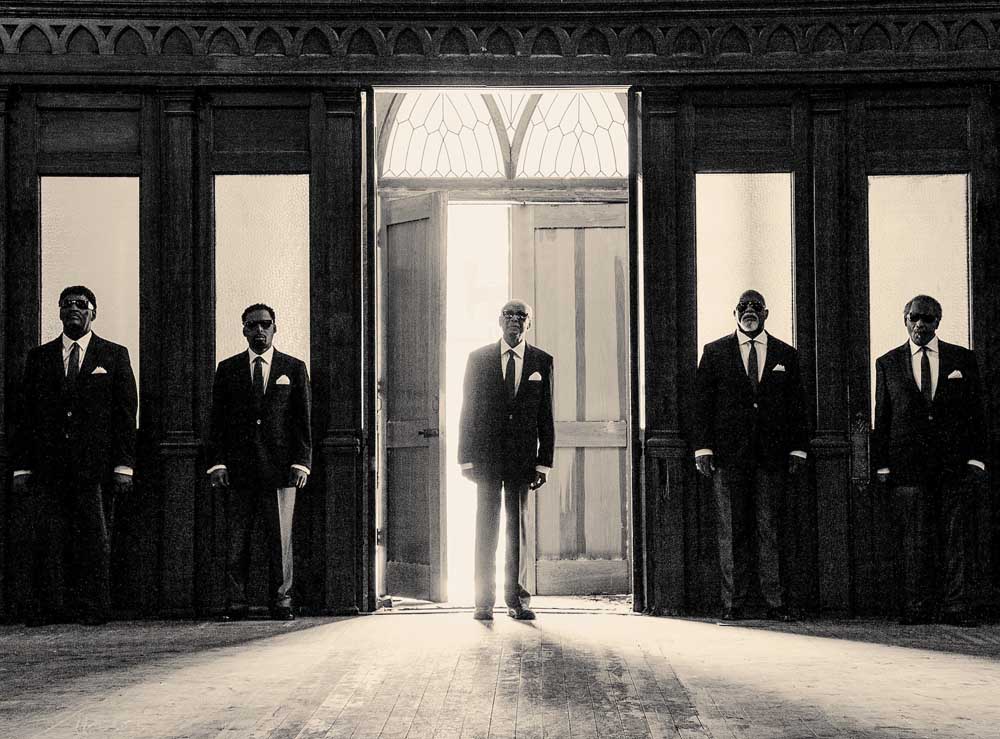Gospel meets folk at the Tower Theatre
Published 12:00 am Thursday, January 18, 2018

- Long-running gospel group the Blind Boys of Alabama, which has been touring since the 1940s, will perform with folk singer Marc Cohn at the Tower Theatre on Sunday. (Jim Herrington/Submitted photo)
For nearly eight decades now, the Blind Boys of Alabama have “stayed on the gospel side,” as the chorus hook to the lead-off track of the group’s most recent album, “Almost Home,” proudly declares.
The male singing group’s dedication to spiritual music has led to a roller-coaster career full of ups and downs — from touring the segregated South in the ’40s, ’50s and ’60s; to weathering the shift to secular soul music in the ’70s; to renewed popularity in the ’90s and 2000s. In particular, the group’s penchant for unexpected collaborations with artists such as Ben Harper, Dr. John, Lou Reed and Allen Toussaint — not to mention esoteric song choices including Tom Waits’ “Way Down in the Hole,” which served as theme song for HBO’s “The Wire” for a year — have increased its visibility in its latter years.
“A lot of times, we leave our door open and a lot of people that we don’t even really know feel like they want to collaborate with us, they want us to sing a song with them,” longtime member Eric “Ricky” McKinnie said from a tour stop in Marion, Indiana. “They’ll call and then ask us to background them on a record or on a song. When we went in to do the Ben Harper tune, we started out doing two songs with Ben Harper, but the vibe was so good we ended up doing a whole album.”
Most of these collaborators have something in common besides being big fans of the Blind Boys — they primarily make secular music. But that doesn’t affect the collaborations or the mission of the Blind Boys, according to McKinnie, who joined as drummer in 1989 and was made a full-time singer following the death of original member Johnny Fields in 2009.
“We realize that we sing from the heart and we sing from the soul,” he said. “And when we meet other people that their songs are from the heart and their songs have meaning, we don’t have a problem. Working together works.”
That spirit of collaboration extends to the Blind Boys’ tours. Singer-songwriter Marc Cohn, who recently marked the 25th anniversary of his 1991 self-titled debut album and breakout single “Walking in Memphis,” will join the singers on their current run of West Coast dates, including a sold-out stop at the Tower Theatre on Sunday.
The Blind Boys — including founding member Jimmy Carter, McKinnie, Ben Moore, Joey Williams and Paul Beasley — were part of Cohn’s recent anniversary tour, in which he performed his self-titled album in its entirety. The two artists have worked together in various capacities since their first collaboration about three or four years ago, by McKinnie’s count.
Most recently, Cohn co-wrote the first three songs on “Almost Home,” joining a long list of songwriters and musicians who worked on the album including John Leventhal, Luther Dickinson, Oteil Burbridge and Ruthie Foster. Manager Charles Driebe videotaped extensive interviews with Carter and fellow founding member Clarence Fountain, both in their 80s, then shared the videos with the songwriters, who turned the stories into lyrics.
The album’s 12 tracks offer snapshots of Carter and Fountain’s lives in the Blind Boys and beyond, with often emotional results. For example, “Let My Mother Live,” one of the Cohn-Leventhal compositions, details Carter’s father’s death in a mining accident when Carter was 12 years old, and Carter’s subsequent prayer to “let my mother live ’til I get grown” (she lived to age 103, according to a press release). The track earned the group its 10th Grammy nomination this year for Best American Roots Performance.
“I had heard Mr. Carter talk about his school experiences before,” McKinnie said. “But to hear somebody put his words into music was a great experience. And every night when he sings (the title track) ‘Almost Home,’ I can feel and see in my mind the experience that he must have been going through.”
Carter and Fountain (who retired from touring due to health issues but records and occasionally performs with the group) were 9 years old when they first sang together in chorus at the Alabama Institute for the Negro Blind in Talladega, Alabama. By the 1940s, the original five Blind Boys were touring the gospel circuit. They released their first single, “I Can See Everybody’s Mother But Mine,” in 1948.
McKinnie was in his 20s when he lost his sight due to glaucoma in 1975. A drummer and singer who grew up surrounded by gospel music, McKinnie met the Blind Boys when he was 4 years old. He would go on to play with gospel groups such as The Soul Searchers and The Gospel Keynotes, as well as leading his own group, The Ricky McKinnie Singers, which still performs today.
“Thomas A. Dorsey — great songwriter, Thomas A. Dorsey — I was playing for his nephew’s church; B.J. Johnson Jr., he had a church called Greater Mount Calvary (in Atlanta),” McKinnie said. “Clarence called me; they were going overseas and they needed a drummer. So I was raring to go, so I went overseas and here I am. And I was playing with my own group too, the Ricky McKinnie Singers, but so be it. They want me to be here, and I’m glad to be here.”






